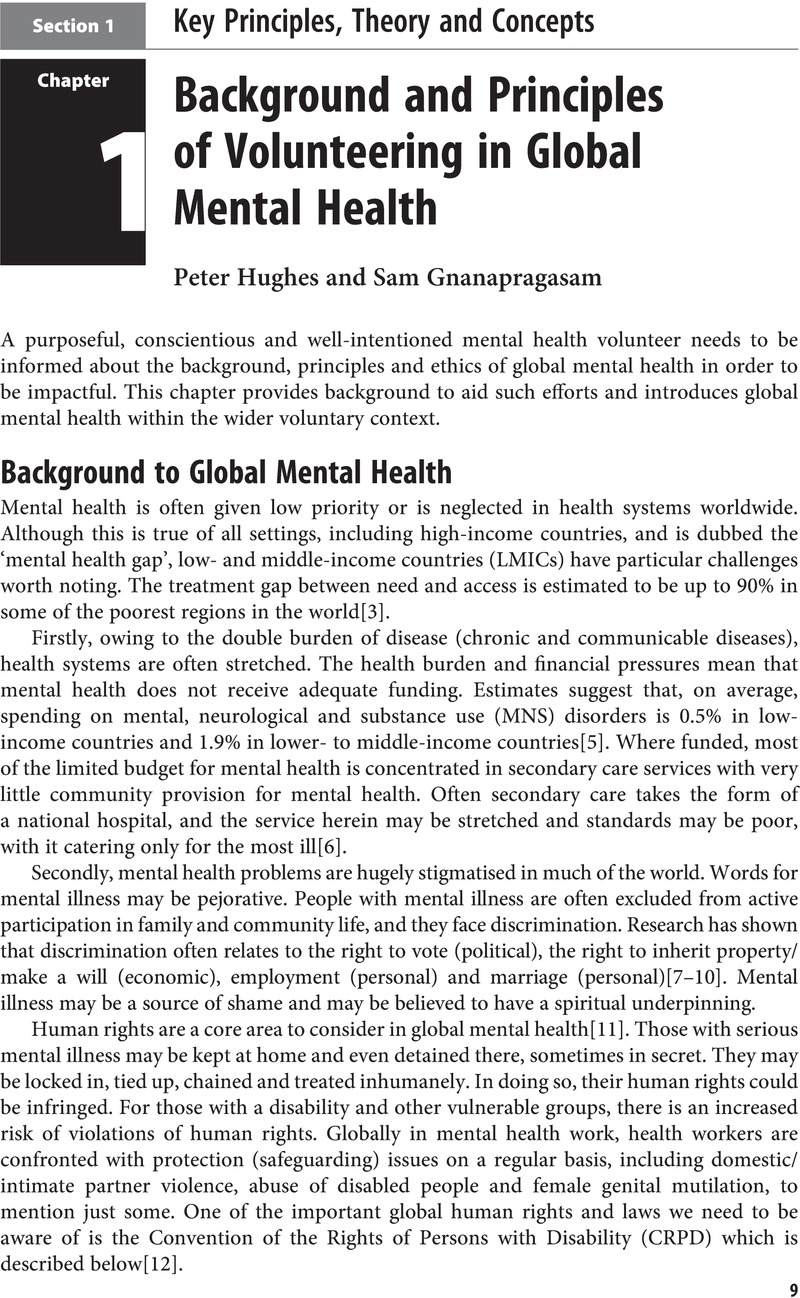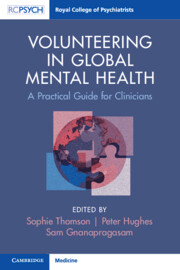Book contents
- Volunteering in Global Mental Health
- Reviews
- Volunteering in Global Mental Health
- Copyright page
- Contents
- Foreword
- Contributors
- Introduction
- Section 1 Key Principles, Theory and Concepts
- Section 2 Practical Guide and Toolkit
- Section 3 Reflective Accounts and Perspectives of Global Mental Health Volunteering
- Section 4 Future of Global Volunteering
- Book part
- Glossary
- Index
- References
Section 1 - Key Principles, Theory and Concepts
Published online by Cambridge University Press: 08 November 2023
- Volunteering in Global Mental Health
- Reviews
- Volunteering in Global Mental Health
- Copyright page
- Contents
- Foreword
- Contributors
- Introduction
- Section 1 Key Principles, Theory and Concepts
- Section 2 Practical Guide and Toolkit
- Section 3 Reflective Accounts and Perspectives of Global Mental Health Volunteering
- Section 4 Future of Global Volunteering
- Book part
- Glossary
- Index
- References
Summary

- Type
- Chapter
- Information
- Volunteering in Global Mental HealthA Practical Guide for Clinicians, pp. 9 - 46Publisher: Cambridge University PressPrint publication year: 2023

